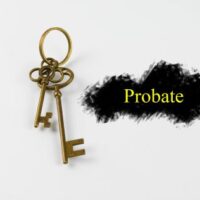Do All Estates Have to Go Through Probate in Washington?

Probate is a legal process overseen by the courts that is sometimes required after a person passes away. Probate gives the personal representative of a person’s estate the authority to pay the taxes and debts of the deceased, collect their assets, and ultimately transfer assets to beneficiaries. The personal representative of the estate is usually a surviving spouse or other family member.
The probate process usually takes anywhere from six months to one year in Washington, although it can take longer in some cases. Not all estates must go through the probate process. Below, one of our Spokane probate lawyers explains more.
Assets Exempt from the Probate Process
State law does not require that all assets go through the probate process. It is possible to transfer certain property to beneficiaries without the need for probate. Some common examples of assets that can avoid the probate process are as follows:
- Assets owned in joint tenancy with another person, which automatically pass to the surviving owner or owners,
- Assets included in a community property agreement signed by the deceased and their spouse or domestic partner,
- Assets with named beneficiaries that are not included in a will, such as payable-on-death bank accounts or retirement accounts,
- Pension benefits or life insurance proceeds that have named beneficiaries, and
- Assets transferred to a revocable living trust.
If, after the above assets have been excluded from a deceased person’s estate the total value of the estate is $100,000 or less, and there is not real estate, probate also often is not necessary. Beneficiaries can then claim assets with an affidavit, which is a sworn statement.
Requesting Settlement Without Court Intervention
There are instances when the personal representative of the estate can ask the probate court to use a simplified probate process. This allows the administration and closing of the estate without the need for court supervision. If the request is granted, the personal representative can then collect, sell, or distribute the assets in the estate without obtaining the approval of the court and without providing heirs, beneficiaries, or creditors with a bunch of unnecessary notices.
If an estate is solvent, meaning it has more assets than debts, the court may approve a request for settlement without intervention. Additional requirements must also be met, which include:
- The named executor in the will must make the request, or
- The surviving spouse or domestic partner of the deceased can make the request in the absence of a will and if the estate is entirely community property, and the deceased has no surviving children or grandchildren from a previous relationship, or
- The personal representative of the estate is not a creditor of the deceased and the court decides it would be in the best interests of the creditors and beneficiaries.
Our Probate Lawyers in Spokane Can Help You Through the Process
Whether you are creating an estate plan to help your loved ones avoid probate, or you have lost a loved one and have questions, our Spokane probate lawyers are here to help. At Moulton Law Offices, P.S., our seasoned attorneys can advise on your case and provide the solutions you need. Call us now at 509-328-2150 or chat with us online to request a consultation and to get more information.
Sources:
apps.leg.wa.gov/rcw/default.aspx?Cite=11
app.leg.wa.gov/rcw/default.aspx?cite=11.12&full=true
